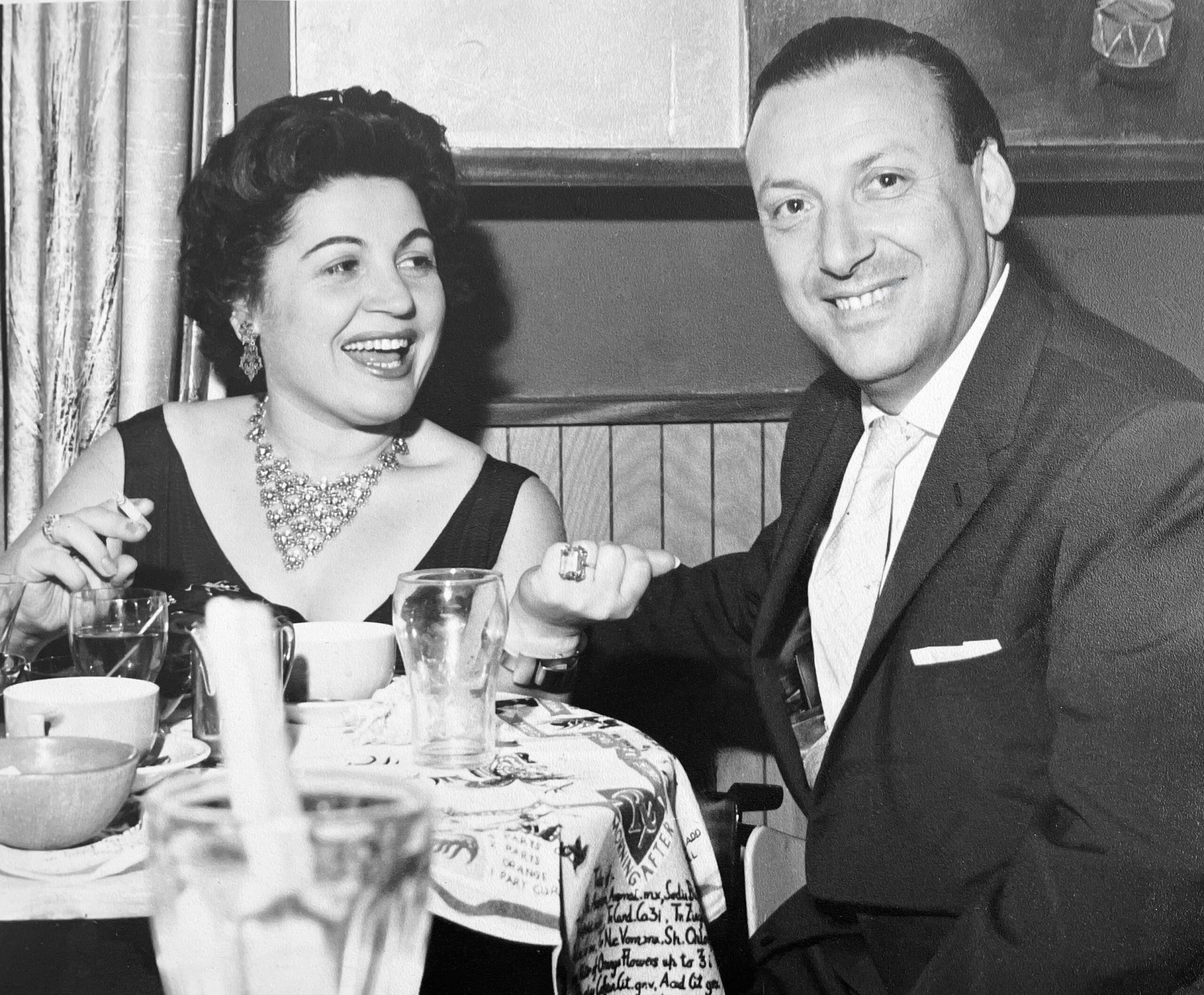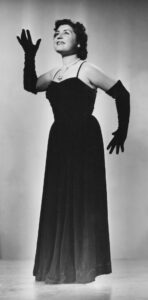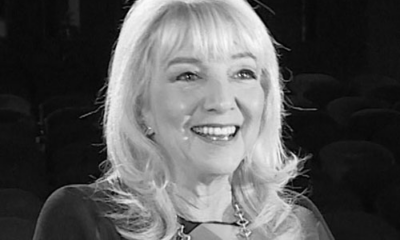
Featured Item

Voice of Vilna brought to life in new exhibition
Chayela Rosenthal started out as an actress and singing star in the Vilna Ghetto Theatre in Lithuania, and after enduring unfathomable tragedy, she rebuilt her life in South Africa, becoming a Broadway star.
Her unique story spanning Lithuania, Cape Town, across generations, and against all odds is to be explored in a travelling exhibition to be housed at the Cape Town Holocaust & Genocide Centre (CTHGC) in June 2023.
It will explore Vilna-born Rosenthal’s pre-war life, and her extraordinary tale of survival and resistance through her music, and that of her brother, poet and composer Leyb Rosenthal, who was brutally murdered; her post-war career and enormous contribution to Yiddish theatre; and how her family kept her legacy alive after her untimely death at the age of 54.

“I’m so excited that the life story of my brave and talented mother, Chayela Rosenthal, is being remembered,” says her daughter, Zola Schuman. “New generations will come to know her story, and that of her gifted brother, Leyb, and learn more about the Vilna Ghetto and the resilience of the Jewish people who created art, music, and theatre in the midst of unspeakable suffering.”
It will tell the story of Rosenthal, who survived the Vilna Ghetto, Kaiserwald concentration camp, Stutthof concentration camp, and a death march. She endured tragedy but rebuilt her life on the southern tip of Africa with her husband, fellow survivor Xavier Piatka, and their two daughters, going on to have a remarkable career on Broadway and around the world.
The exhibition was conceptualised and developed by the CTHGC and the launch will coincide with the 80th anniversary of the liquidation of the Vilna Ghetto by the Nazis in 1943.
Schuman says her awareness that her parents were Holocaust survivors probably “began in the womb”.
“I knew from a very young age that my family was ‘different’. The shadow of the Holocaust seemed like the fifth member of our family, with my mother’s long silences and my father’s sudden emotional outbursts.
“I had no grandparents and only one aunt, and a photograph of a young man under my mom’s dressing table glass that we couldn’t ask her about. It was her beloved brother who was killed by the Nazis two days before liberation. My father always spoke openly about the Holocaust, but my mother never did. It was too painful for her.”
She says the most traumatic things her mother faced were “hunger, starvation, painful beatings, humiliation, horrific cruelty, imprisonment, uncertainty, the daily expectation of possible imminent death, and witnessing the cold-blooded murder of so many. A day or two after the Germans invaded her hometown, her father was forced out of their house and was never seen again.
“Every day from 24 June 1939 until May 1945 held trauma, though after she was liberated, trauma still prevailed: typhoid fever, starting a new life of unknowns, and carrying with her the loss of her mother, father, and brother, always.”
She says her mother dealt with this in three ways, often contradictory, with “silence, song, and comedy. In public, she was determined to be happy. She decided to ‘seize the day’, and spread joy. She had a fabulous sense of humour, and with her comedy and songs, she was able to bring smiles to others. She did this in the ghetto and the camps too.”
Her father was a journalist, and growing up in such a cultural household was “normal” for Shuman and her sister, Naava. “It was all I knew from a young age. We were always taken to theatre and cinema. We went to all mom’s shows and enjoyed or endured daily rehearsals in our home. As young kids, my sister and I were already on stage performing!
“At home, someone was always either singing out loud, playing the piano or records, when the news wasn’t blaring from my dad’s radios. Our home was always filled with actors and artists from all around the world, and many gay people, black people … even when that was illegal.”
But tragedy continued to dog the family, as both Shuman’s mother and sister died young of cancer. They both could have achieved so much had their lives not been cut short, she says. “They were both so full of life and endless energy and driven to do it all and do it well. My mom and sister were unstoppable.
“It’s my honour and privilege to share their life’s work with the world.” Her father has also since passed away. “I continue to do multimedia presentations that tell their stories; I perform songs my mama sang; give talks about my sister Naava’s book; and have created a website, www.chayela.com, about my family. I created YouTube channels to share their music and other performances. All this is my legacy of love – telling their stories and singing their songs, though singing in Yiddish has been a challenge, but I’m working on it!”
The exhibition will include incredible artefacts, including “my mother’s favourite glorious sequined dress and top she wore on stage; the floral dress she wore in her first South African Yiddish play; the original book in which she wrote songs from the Vilna Ghetto; her original comedy sketches and jokes; her LP records; original show programmes; newspaper articles; music manuscripts; and more.”
She thinks readers will find the exhibition meaningful because it’s uplifting in spite of it being a Holocaust story, and “the majority of South African Jews are of Litvak descent, so it will be an interesting personal journey too. Younger visitors will be exposed to more of their grand and great-grandparents’ life and culture.
“Older visitors may remember my mother. Although she was an international star, she chose to make South Africa her home, and performed all around the country, bringing joy and the mameloshen – Yiddish.”
She believes the exhibition will appeal to all generations, “as it moves from the darkest chapter in our history through to the current day – telling a young girl’s journey from the ghetto to Europe, onto the stages of Broadway, and into sunny South Africa”.
She hopes the exhibition will “invoke a deeper awareness of Jewish life and culture before the Holocaust, a new appreciation of the courage of our people, and of what was saved and brought from history to the present. I hope it will remind every visitor to fight against injustice and hatred and each visitor follows my mom’s advice to celebrate each day and remember my Uncle Leyb’s words ‘Mir leybn eybik, mir zaynen doh’ (We will live forever… we’re still here!)”.
Finally, she wants to thank “all those whose families welcomed my parents into this wonderful community, those who went to my mom’s shows, and all who will now honour her memory and those of all our ancestors by visiting the exhibition.”
- The exhibition, “Chayela Rosenthal: Wunderkind of the Vilna Ghetto Theatre” will run from 18 June to 4 August 2023 in Cape Town, and will be accompanied by an ancillary programme of performances, film screenings, lectures, and educational programmes. It will travel to Johannesburg and Durban later this year.










